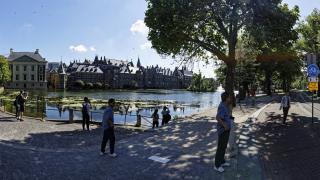Why Choose Dutch Universities?
Dutch universities rank highly in global rankings. The Netherlands has 13 research universities in the QS World University Rankings 2024. Over 2,100 English-taught programs are offered, more than anywhere else in continental Europe. Tuition for EU/EEA students starts at €2,314 per year (2023-2024). Non-EU fees range from €6,000 to €20,000 per year. Teaching in the Netherlands is interactive and student-centered. Lectures combine with group projects and practical assignments. Dutch universities use the binding study advice (BSA) system. Students must earn a minimum number of credits in the first year. International students make up 15-20% of the student body at many institutions. Dutch campuses are multicultural, with over 170 nationalities represented at the University of Amsterdam alone. Research is a core focus. Students participate in real-world projects with Dutch companies and research institutes. Internships are common, especially in fields like engineering and business. Most campuses are within 30 minutes of major cities by train. Dutch universities offer strong support services for international students, including orientation and language courses.
Dutch universities use a central portal called Studielink for applications. Most bachelor’s and master’s programs open applications in October. Main intake is September; some offer February starts.
- Academic year: Runs September to July. Semester system is standard.
- Studielink: Register at studielink.nl. Submit personal details, diploma info, and program choices.
- Entry requirements:
- Bachelor’s: Dutch VWO diploma or equivalent. International diplomas (e.g., A-levels, IB) must be recognized by Nuffic.
- Master’s: Dutch bachelor’s or recognized equivalent. Some require specific subject backgrounds.
- Language: Most English-taught programs require IELTS (6.0–7.0) or TOEFL (80–100). Dutch-taught programs require NT2-II.
- Motivation letter and CV: Often required for selective programs.
- Deadlines:
- Numerus Fixus (limited places): 15 January.
- Other programs: 1 May (bachelor), varies for master’s (often 1 April–1 June).
- Recognition: Nuffic evaluates foreign diplomas. Some applicants need to provide certified translations.
Tip: Start early. Prepare documents in advance. Check university-specific requirements on official websites.
Student Life: Dutch Style
Finding housing is a challenge in Dutch cities. Student rooms (kamers) are scarce, especially in Amsterdam, Utrecht, and Groningen. Average monthly rent for a student room is €400-€700. Housing corporations like DUWO and SSH offer student accommodation. Waiting lists can be several months. Many students use Kamernet.nl for private rentals. Shared apartments (huisgenoten) are common. Cycling is the main way students travel. Most cities have dedicated bike lanes. A used bike costs €80-€150. Public transport uses the OV-chipkaart. A student discount (studentenreisproduct) gives free or reduced travel for Dutch students. International students pay full fare. Dutch classes are interactive. Lectures combine group work, presentations, and open discussion. Attendance is often mandatory. Most courses use Blackboard or Brightspace for materials. Student associations (verenigingen) are central to social life. Each university has dozens of clubs: sports, study, international, and cultural. Membership fees range from €20-€60 per year. Events include borrels (informal drinks), parties, and excursions. Dutch customs include direct communication and punctuality. Students greet with a handshake or three kisses. Lunch is often bread with cheese. Many international students join Dutch language courses. Adapting takes time, but most universities offer buddy programs for support.
Budgeting for Dutch Living
Tuition fees in the Netherlands vary by nationality.
- EU/EEA students pay statutory tuition: €2,530 per year (2024-2025).
- Non-EU/EEA students pay institutional fees: €6,000–€20,000 per year for bachelor’s, €8,000–€30,000 for master’s.
Monthly living costs average €900–€1,500.
- Rent for a student room (kamer): €400–€700 per month, depending on city.
- Groceries: €150–€250 per month. Eating out is €10–€15 for a simple meal.
- Dutch health insurance is mandatory for students working or over 30: €120–€150 per month.
- Public transport (OV-chipkaart): €40–€100 per month. Many students use bikes; second-hand bikes cost €50–€150.
Student discounts are common.
- Museumkaart: €75/year for museum access.
- ISIC card for discounts on travel, shops, and events.
Part-time work is allowed.
- EU/EEA students can work unlimited hours.
- Non-EU/EEA students: max 16 hours/week or full-time in June–August. Work permit (TWV) required.
Financial aid:
- Dutch government offers ‘studiefinanciering’ for EU/EEA students meeting residency criteria.
- Non-EU/EEA students can apply for university scholarships (e.g., Holland Scholarship, Erasmus+ grants).
Careful budgeting is essential for student life in the Netherlands.
Settling In: Practical Essentials
Register with the gemeente (municipality) within five days of arrival. You receive a BSN (Burgerservicenummer) needed for all official matters. Bring your passport, rental contract, and university letter.
Dutch health insurance is mandatory if you work or have a paid internship. Basic student policies start at €120 per month. EU/EEA students with an EHIC card may not need Dutch insurance unless employed. Non-EU/EEA students must arrange coverage before arrival.
Open a Dutch bank account for rent and tuition payments. ING, ABN AMRO, and Rabobank offer student accounts. Bring your BSN, proof of address, and university registration.
Visa and residence permit requirements depend on nationality. Non-EU/EEA students need an MVV entry visa and a verblijfsvergunning (residence permit). Universities usually apply on your behalf. Processing takes 2–3 months.
Useful resources:
- Nuffic (Study in NL): studyinholland.nl
- International Student Services: Most universities have a dedicated office.
- Student unions: ISO, LSVb, ESN Netherlands
Public transport: Get an OV-chipkaart for trains, trams, and buses. Monthly student discounts are available through DUO for eligible students.
Quick-Start Checklist for New Students
Pre-departure:
- Arrange Dutch health insurance before arrival. EU EHIC accepted, but check coverage.
- Bring passport, Dutch visa/residence permit (if required), university admission letter, and rental contract.
- Open a Dutch bank account. ING, ABN AMRO, and Rabobank are common options.
- Pack a rain jacket and bicycle lock. Dutch weather is wet and cycling is standard.
- Budget for initial costs: first month’s rent, deposit (often one month), and municipal registration fees (about €50).
First week:
- Register at the gemeente (city hall) for your BSN. Needed for work, banking, and healthcare.
- Collect student OV-chipkaart for discounted public transport. Apply via DUO after registration.
- Attend university orientation (introweek). Get info on Dutch grading, student associations, and campus rules.
- Check housing contract for huurtoeslag (rent benefit) eligibility.
Contacts:
- 112 for emergencies. 0900-8844 for non-urgent police.
- University international office assists with legal, academic, and housing issues.
- Visit the huisarts (GP) for medical care. Register early.












